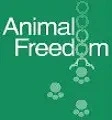The problems with (foreign) meat |
The export of meat is not as favorable as people are inclined to think.
Free trading is not always beneficial, especially not
for (the well-being of) animals. Why ship meat from
one country to another, while other meat is shipped
back? This exchange is possible for farmers that can
produce against low costs. It is the same farmer that
uses factory farming methods. This way he forces farmers
from abroad to use the same animal unfriendly farming methods.
Nowadays a few countries want to stop the import of
meat from other countries, but the same countries force
other countries to accept their products through WTO negotiations. |
We encourage countries to
impose limitations on animal products (dead or alive)
from foreign countries. Even better, why not stop the
export of meat at all, at least between continents?
There is an economic advantage for only a small group
of people, but there are lots of disadvantages for a
great number of people and animals. We mention them below.
Animal Freedom supports policy to end
the existence of factory farms in The Netherlands,
#3 on the export charts of meat export,
behind France and the USA (#1).
If Dutch meat products were not exported
(i.e. 70% reduction), ecologically sound
cattle farming could replace factory farming
in the Netherlands. Animal-friendly farms
could easily feed the Dutch population. |
The objections of Animal Freedom against Dutch meat(production) are the following.
- The Netherlands is too small a country for
intensive (and extensive) cattle farming on the present
scale. On a yearly basis, more than 450 million animals
are kept in confined spaces, resulting in so much
overproduction that two thirds of the meat and poultry
production is exported. A reduction in this level
of production is absolutely necessary.
- Live animals are transported to and from The Netherlands.
These transports take several days and cause much stress to the animals involved.
- The Netherlands disrupts the agricultural economy of Third
World countries by importing cattle food cheaply,
and is therefore an indirect cause of hunger. This
also disturbs part of the global mineral balance.
- The Netherlands use so much antibiotics in
cattle food that it is creating a worldwide time-bomb
of resistant bacteria that are exported with the meat.
- The Netherlands has a reduced attractiveness
for tourists, caused by the pollution created
by excess manure and has huge,
ugly, factory farm buildings in the countryside.
- Dutch factory farming forces other countries
to compete in developing these low-cost systems
supported by Dutch engineers and companies. Low-cost
factory farming is a threat to animal well-being.
|
Factory farming
In The Netherlands is related
to wrongs elsewhere in the world, and the excessive
use of antibiotic in The Netherlands necessary to maintain
such a huge population of livestock can become a danger
to world health in the long run.
Virtually all Dutch meat that you can buy abroad is
produced in factory farms. A boycott of Dutch meat by
foreign countries could have a sound impact on the improvement
of well-being of animals kept in factory farms, and
on the improvement of the environment in general. |
In Australia the shame of the enormous export of live animals is documented:
The economics of the live animal
export trade are questionable. Its impact on the Australian
work force has been negative and over 17,000 jobs have
been lost to overseas interests along with the profits.
Despite those economic considerations - this industry
brings in around $900 million per annum, it comes at a
far greater cost and Australians are saying this barbaric
trade is not worth it. |
|
|
|
|
| |

